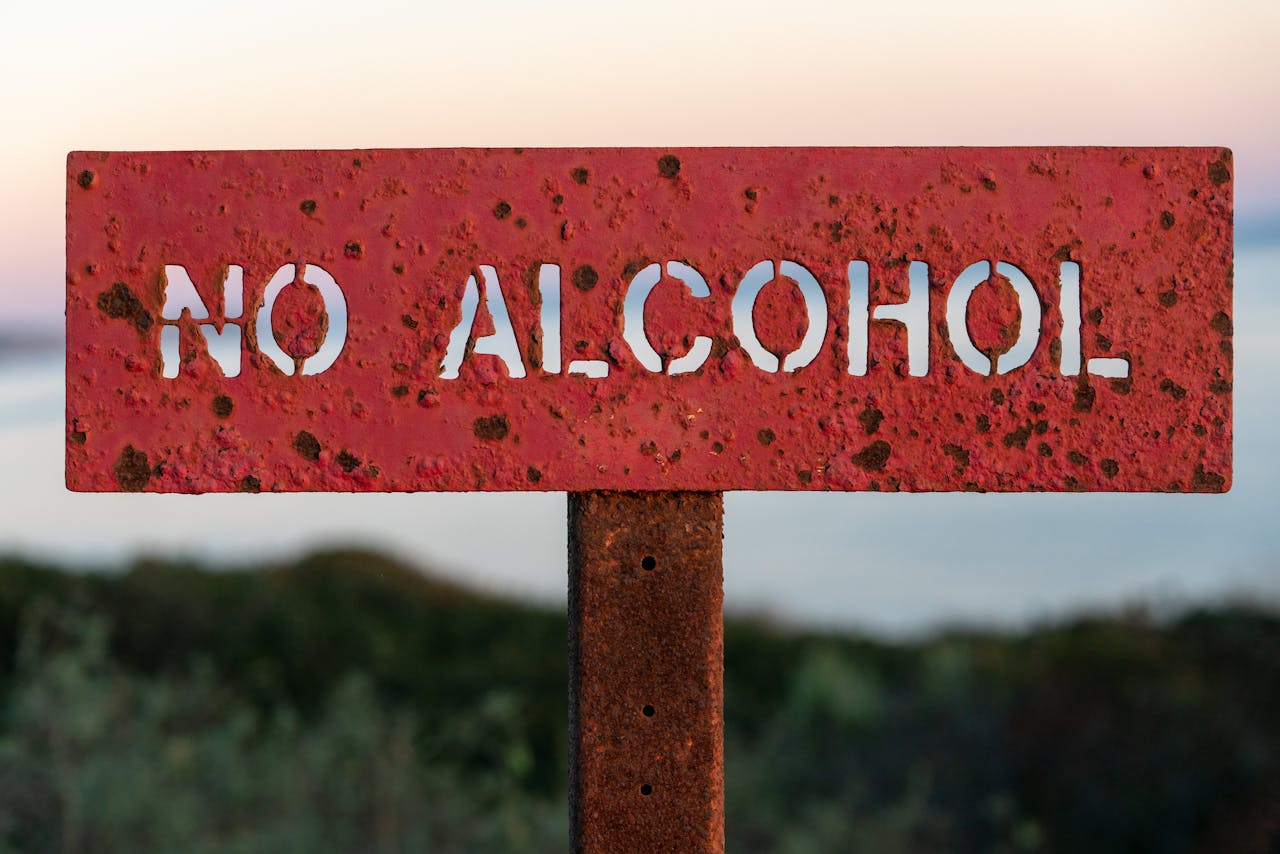A recent study discovered that older persons who drink light to moderately are more likely to die from cancer and other diseases.
The results support a growing body of research that demonstrates alcohol use has negative impacts, especially on moderate drinkers.
The way that the public views alcohol is changing, particularly among youth, as more people decide to cut back on their intake or abstain completely in order to protect their health.
All in moderation, but with warnings.
Long-held notions about the alleged health benefits of the occasional drink or two are changing as more evidence demonstrates the detrimental effects of alcohol intake, even in modest levels.
A sizable new study indicated that moderate alcohol use did not improve the risk of disease-related mortality in older persons, but rather increased it. It was published on August 12 in JAMA Network OpenTrusted Source.
The results are based on medical records of over 135,000 UK people 60 years of age and older who have socioeconomic or health-related risk factors.
In-depth inquiries concerning the participants’ alcohol consumption from 2006 to 2010 were made during the first interviews. Researchers discovered increases in cancer-related and all-cause mortality among low-, moderate-, and high-risk drinkers using data from the UK Biobank.
There were no correlations discovered for moderate drinkers who did not have socioeconomic or health-related risk factors. However, moderate drinking remained to reveal higher likelihood of dying from cancer and other causes, whereas low risk drinking was still linked to a higher risk of cancer mortality in this group.
In the meantime, a recent Gallup survey indicates that a growing number of American youth now see alcohol as harmful.
“There is a widespread misconception that drinking alcohol in moderation enhances health outcomes,” board-certified family physician David Cutler, MD, of Providence Saint John’s Health Center in Santa Monica, California, told Healthline. Cutler did not work on the research project.
Nothing could be more false than it is. The truth is that research conducted on the entire population (Trusted Source) show that alcohol use can be harmful to one’s health in any amount. Thus, it is challenging to refute the widely held belief that drinking alcohol may be harmful to your health, according to Cutler.
Drinking in moderation increases the chance of death from disease
In spite of earlier research that would have indicated the opposite, this new study confirms what many medical professionals have long assumed regarding moderate drinking.
Red wine consumption may “significantly” lower the risk of cardiovascular death, according to an earlier study that was published in 2000. More recently, a scientific review published in 2020 emphasized the advantages of light to moderate alcohol intake for health, including a lower risk of type 2 diabetes and cardiovascular disease.
Current policies on days when alcohol is used, Trusted Source for Moderate Drinking continues to recommend up to 14 grams, or 1 drink, for women and up to 28 grams, or 2 drinks, for men.
Researchers classified moderate consumption as 20–40 grams of alcohol for men and 10–20 grams for women per day in the JAMA study. This range goes over the current recommendations for moderate drinking.
According to the research, people who drank no more than 10 grams of alcohol per day—less than one standard drink—had the lowest odds of alcohol-related death. These risks increased with higher socioeconomic class.
“It is important to consider the overall health risks associated with alcohol consumption,” Cutler added. Even those who drank at the lowest risk had higher cancer mortality rates. Furthermore, these risks increased if socioeconomic and health-related characteristics were also present. Therefore, moderate and heavy drinkers do not have a safe haven, while some people may find justifications for mild alcohol drinking because they do not have risk factors for negative outcomes.
Because the older adults in the study already had other health concerns, Daniel Landau, MD, a board-certified oncologist, medical director of virtual hematology at the Medical University of South Carolina, and contributor for the Mesothelioma Center, told Healthline that alcohol may have been especially harmful to them.
Landau, who was not involved in the study, stated that “people over 60 often have other comorbidities such as diabetes or heart disease and are already at higher risks of developing cancers.” “Adding alcohol to these risks seemed to make these other medical conditions worse and may increase the chance of developing cancer.”
Socioeconomic status and increased risk of alcohol-related deaths
Researchers used socioeconomic status as a significant factor in estimating the risk of alcohol-related diseases.
Since the majority of study participants were White, the results do not take into consideration how alcohol affects different racial groups.
There were no documented adverse health effects for those who drank solely with meals, liked wine, and were characterized as having light alcohol intake.
The idea, according to Landau, is that a large number of these individuals were usually from higher socioeconomic backgrounds, had better access to care, and had less comorbidities. “The alcohol may not have had the full detrimental effect it did on the rest of the population because they may have had a lower rate of diabetes or other medical conditions.”
More adolescents are abstaining from alcohol
According to a recent Gallup poll released on August 13, over half (45%) of Americans think that consuming alcohol in moderation could be bad for their health.
This represents an all-time high for the survey during the previous 20 years, up 6 percentage points from the previous year and 17 percentage points from 2018.
Young people’s opinions on alcohol are beginning to change more dramatically.
About 65% of individuals in the 18–34 age range believe alcohol has a detrimental impact on health. In fact, there’s a rising Gen Zer trend known as “sober curiosity.”
However, 39% of those aged 55 and above and 37% of those aged 35 to 54 concur that alcohol consumption may be harmful.
Gallup says that just 8% of respondents think alcohol may have a beneficial impact, which is the lowest percentage ever.
“There has always been conflicting evidence in our society regarding the health benefits or drawbacks of alcohol,” Cutler stated regarding the history of alcohol intake. Alcohol can be dangerous in any level, according to the data. Cautionary individuals ought to carefully consider whether consuming alcohol is best for their general health.
Human health is harmed by ethanol and formaldehyde exposure. These ingredients are present in variable levels in alcoholic beverages.
The majority of the ethanol ingested during alcohol metabolism is broken down by the liver and converted into acetaldehyde, a harmful chemical that is known to cause cancer and may damage DNA, according to the National Institute on Alcohol Abuse and Alcoholism (NIAAA)Trusted Source.
Even though the acetaldehyde reaction normally ends quickly before being converted to acetate, it can nevertheless cause serious harm, especially to the liver, which is where most alcohol metabolism takes place.
Landau pointed out that other research has looked at the negative effects of formaldehyde in a variety of alcoholic beverages.
A 2011 investigationFor example, 132 out of 508 alcohol beverage samples—which included beer, wine, spirits, and other types of alcohol—had hazardous formaldehyde detected by Trusted Source.
According to Landau, “one of the widely accepted theories as to why alcohol is detrimental to our organs, especially our liver, is the conversion of alcohol to formaldehyde.” “Excessive amounts of it can be extremely dangerous as it is highly toxic.”
Should you stop drinking alcohol?
Many people are unsure about whether to limit their alcohol use or abstain from it completely due to the shift in popular view of alcohol and the growing body of research demonstrating its potential harm.
According to the World Health Organization (WHO)Trusted Source, there is no safe level of alcohol consumption in 2023.
The U.S. Dietary Guidelines for Americans, 2020–2025, suggest caution and acknowledge the growing body of research indicating that adhering to the existing recommendations for alcohol consumption may increase the risk of death from all causes, including heart disease and cancer.
The JAMA study does offer some positive news, though: it appears that drinking just during meals may help reduce the related mortality risks.
“I still think that everything should be done in moderation,” Landau declared. People, however, have different ideas about what constitutes moderation. Generally speaking, I tell my patients that while a drink with supper on the weekend is OK, it becomes excessive if we start drinking every day.
To view more articles like this one subscribe to our newsletter! Healthy Living Hub Official




